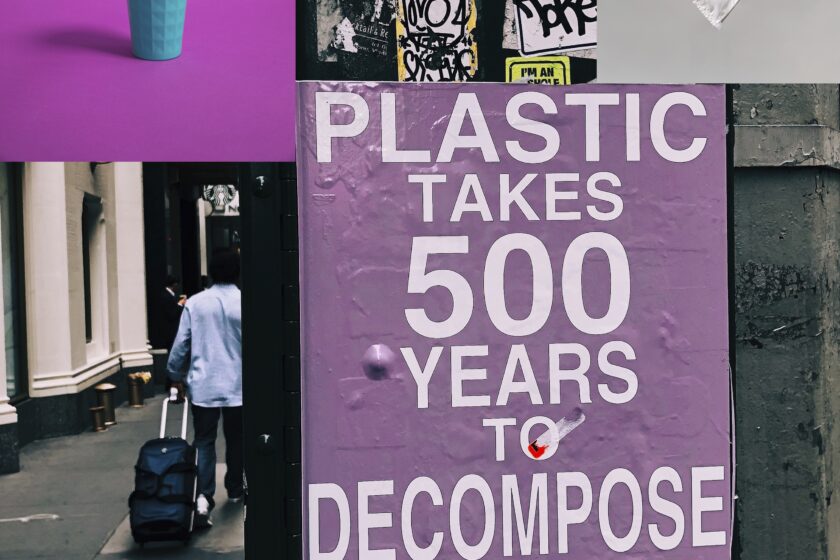Maryland became the first state to ban single use plastic containers. Plastics, including polystyrene that many food containers are made of, are polluting the air, land and water with dangerous microscopic particles that persist in the environment without breaking down.
Maryland joins New York, Maine and Vermont that have passed similar laws banning single use plastic containers, but have not yet gone into effect in those states. The ban in Maryland now prohibits restaurants, schools and other institutions from serving food in the polystyrene containers. The Baltimore Sun reported that it is an especially important change since so many food orders are now take out as a result of concerns about the coronavirus.
Maryland’s new law is expected to be a model for other states that are considering similar bans. Some restaurants and vendors have complained that foam plastic containers are the cheapest but environmentalists say that not only will the shift away from single use plastics reduce the amount of plastic in the environment but it lowers the use of the fossil fuel, petroleum, that is used in the manufacturing of plastics including polystyrene foam for food containers and packaging.
Dunkin Donuts announced in 2018 that it was ending the use of foam coffee cups and will serve its java in paper cups. Customers are also free to bring their own thermos to fill up with coffee. Giant Supermarket announced it is totally phasing out plastic bags.
Canada’s Prime Minister, Justin Trudeau, announced in 2019 that the entire country will end single use plastics by next year, 2021. The ban will include plastic cutlery and plates, cotton swabs, straws and balloons. The Trudeau government has shown a strong interest in reducing the amount of plastic that is discharged on to waterways, land and the world’s oceans. In 2019, at the G7 Summit held in Quebec, Trudeau created the Ocean Plastics Charter. The European Union and 63 countries signed on to the Charter to commit to reduce marine plastics litter. Climate Change Canada found that Canadians throw away 34 million plastic bags every day. Only 9 percent of Canada’s plastic is recycled, most of the rest ends up in landfills.
The recycling of plastic hit a major roadblock when in 2017 China closed its doors to shipments of most types of plastic for recycling. Other countries, Senegal, Vietnam, Turkey and Malaysia have taken up 56 percent of the plastic that the US once exported.
Many environmentally conscious people who meticulously sort plastic and other recyclables would be surprised to learn that most recycled plastic ends up being burned or sent to land fills. The plastic recycling industry rejects plastic bags, cups and clamshell type foam food containers. These are incinerated or sent to land fills. Only plastic bottles and other harder plastics such as laundry detergent containers and car bumpers are recycled. Los Angeles County in 2018 sent 500,000 tons of plastic to four different landfills and 20,000 tons to incinerators. This pattern is similar throughout the US.
In 2016 there were an estimated 150 million tons of plastic pollution in the world’s oceans and that number is expected to increase to 250 million tons by 2025. Eighty percent of the plastic that finds its way to the world’s oceans is dumped into freshwater rivers that eventually discharge into the sea.
Only 10 percent of all the plastics ever manufactured in the world have been recycled.
The biggest plastic dumping countries are China, Indonesia, Vietnam, Thailand and the Philippines that together dump more plastic into the world’s oceans than all the other countries combined.
The plastic that is dumped into the oceans is toxic to marine life and humans. The chemicals that make up plastic include diethylhexyl phthalate, a toxic carcinogen that can cause birth defects and compromise immune systems. Plastics also contain lead, cadmium and mercury. Tiny plankton, the marine organisms at the lowest level of the food chain consume the plastic carcinogens and they are eaten up the food chain, eventually finding their way to our seafood dinner platter. Plastics in the oceans also cause physical disruption of marine organisms. They block the digestive tract and also cause fish to become entangled in plastic objects.
The largest producers of plastics in the world, Coca Cola, Colgate-Palmolive, DANONE, Mars, Mondelez International, PepsiCo, Perfetti Van Melle, Unilever and Nestle, have formed a well funded and powerful lobbying network to sabotage or delay legislation that would reduce the use of disposable plastics.
As the public and governments around the world are becoming more aware of the dangers of the continued production of single use plastics and introduce legislation to limit their use, the plastics industry will eventually have to develop other types of containers, the kind that break down naturally in the environment and are not manufactured of toxic compounds.
